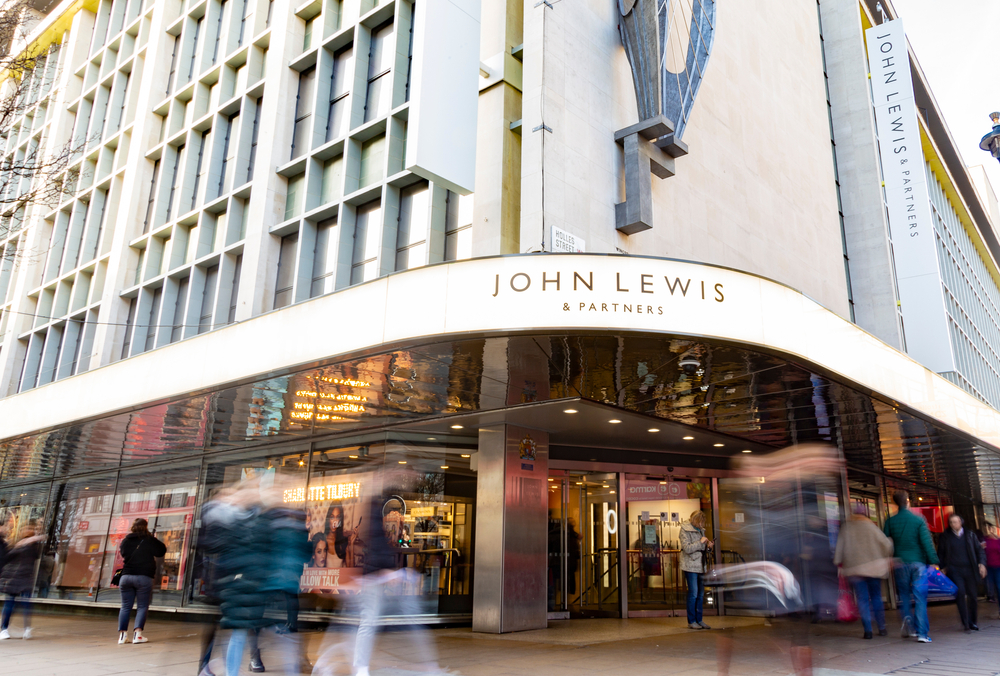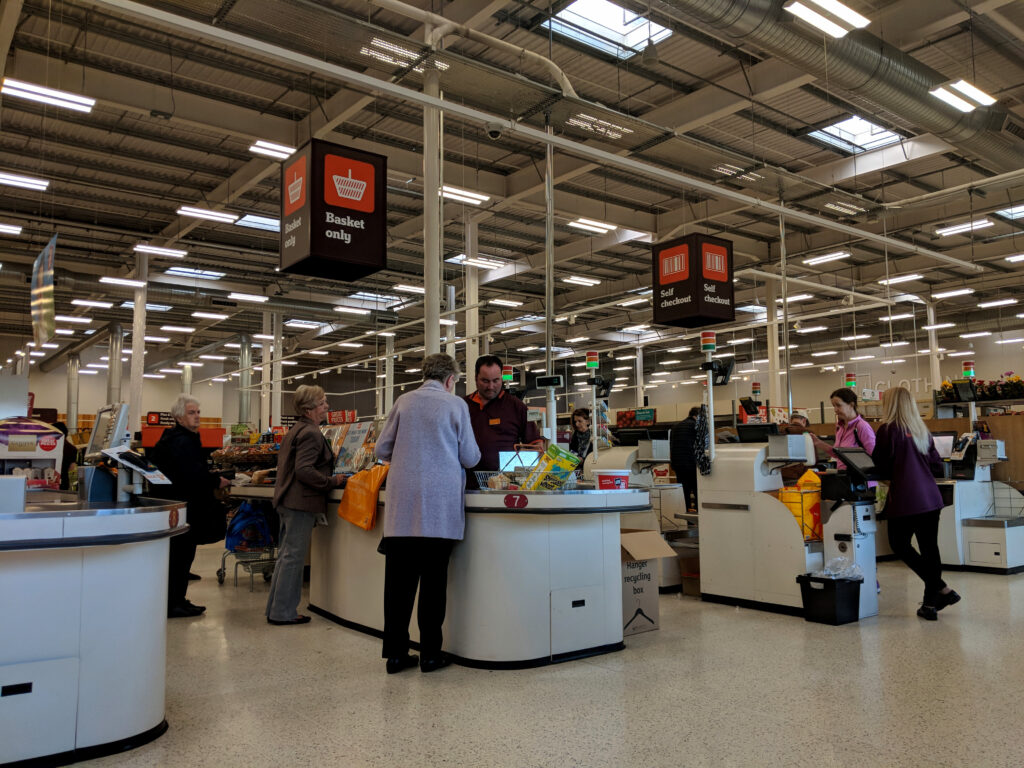International Women’s Day falls on 8 March, which gives Retail Gazette the perfect excuse to highlight some of the amazing female-owned businesses in the sector.
NotOnTheHighStreet – founded by Holly Tucker & Sophie Cornish
NotOnTheHighStreet (NOTHS) was founded in 2006 by Holly Tucker and Sophie Cornish after the pair recognised the need for an online platform that would give exposure to small businesses selling quirky items that you don’t tend to find on the high street.
Since then NOTHS has partnered with over 5,000 business owners and entrepreneurs, and has become a big sales channel for everyone from jewellery makers and engravers to chocolatiers and artisan bakers.
The vast majority (82%) of businesses that sell on NOTHS are female-led.

Tucker and Cornish have exited the business, however, NOTHS is still dominated by female leaders. Former Hello Fresh UK boss Claire Davenport is chief executive of the business, and as of last year nearly three quarters (72%) of its leadership team are women – something that is practically unheard of in retail.
Run by women, and powered by an army of entrepreneurial female sellers, NOTHS is a business that should be celebrated this International Women’s Day.
JoJo Maman Bébé – founded by Laura Tenison
JoJo Maman Bébé first launched in 1993 after founder Laura Tension spent several weeks in hospital following a car accident and began chatting with a young mother who was on the same ward.
The mother of two expressed her frustration at the lack of assortment in children’s clothes and JoJo Maman Bébé was conceived.
It originally launched as a mail order catalogue specialising in quirky yet practical maternity wear and children’s clothes.
Following its success, JoJo opened its first store in Battersea, London in 2020. It now has 90 stores across the UK.

Tala – founded by Grace Beverley
Tala is a social media success story. The sustainable activewear brand was founded and self-funded in 2019 by fitness entrepreneur and influencer Grace Beverley after she built up a significant following online.
According to the retailer’s website “Tala was conceptualised to fill the gaps in Grace’s own wardrobe and to deliver what the industry is missing: sustainably-produced activewear that doesn’t let you down on performance, flattering fits, quality or style, and without the hefty price tag.”
Just last month Beverley successfully raised £4.2 million of investments to expand and grow the business internationally while hiring new talent.

The fundraising was co-led by private equity firm Active Partners and venture capital company Venrex and investors include Deciem founder Nicola Kilner, Rapha founder Simon Mottram and Michelle Kennedy, founder of parent networking app Peanut.
With big-hitters like these bought into Tala, expect big things from the brand in the future.
READ MORE: Can beauty retail make a comeback post Covid-19?
Glossier – founded by Emily Weiss
In 2010, Emily Weiss, a former Vogue fashion assistant, created beauty blog Into the Gloss designed to show the real-world beauty routines of fashion insiders and celebrities.
From the blog, which featured interviews with everyone from Kim Kardashian to “the girl with pink hair who worked at a coffee shop and had cool style”, Weiss gained insights on what women would want from a beauty brand and Glossier was born in 2014, when she was just 29 years old.
The brand’s pared-back “skin first, makeup second” approach tapped into the growing trend of consumers moving away from the idea of using makeup to cover up perceived imperfections and towards a fresher, cleaner finish.
Last year, Glossier was valued at $1.8 billion in it’s last round of fundraising meaning Weiss is one of the rare female founders of a unicorn company.
It has not been all plain sailing for Weiss. Earlier this year she was forced to lay off a third of Glossier’s workforce as it slashes its internal tech team in favour of working with external partners.
She said these changes allowed Glossier to do what it was “uniquely suited” to doing “cultivate a brand that inspires our community, deliver magical and unique experiences, and create essential beauty products that our customers can use for a lifetime.”
Despite the redundancies, Glossier continue to be a hit with millenial shoppers and has much growth left to go for.
The White Company – founded by Chrissie Rucker OBE
The White Company founder Chrissie Rucker OBE was inspired to launch the business at just 24 years old.
She was helping to redecorate her boyfriend – now husband – Charles Tyrwhitt founder Nick Wheeler’s house and found it near-impossible to find high-quality white linens on the high street.
With the help of a £6,000 inheritance from her grandmother, and inspired by Wheeler’s own entrepreneurial efforts, Rucker launched The White Company in 1994.

The premise of the business is simple, high quality homewares, nearly all of which are white.
The idea might be simple but it has caught on. The business, now run by former Topshop boss Mary Homer, turned over £226.3m in 2019/20, its last reported financial year and it has more than 60 stores.
Rucker is committed to helping other women succeed in business. She runs the #ChangeAGirl’sLife campaign with The Prince’s Trust and each International Womens’ Day gets big brands, which this year includes Mary Katrantzou, Bella Freud, Rixo, and Neom, to donate percentage of their sales to help fund young women who have not had the easiest start in life to get back into the workplace.
The White Company itself will donate £5 from every candle it sells between 2 to 8 March.
Amina Muaddi – founded by Amina Muaddi
Amina Muaddi is one of the most sought-after footwear brands in fashion. That’s official. In 2019, global fashion search engine Lyst revealed she was its most-searched shoe brand.
The high-end footwear brand is sold everywhere from Harrods to Net-a-Porter and Selfridges.

As well as leading her own eponymous footwear business, Muaddi, who studied at the European Institute of Design, has also collaborated with Rihanna’s Fenty brand on sell-out shoe collections.
“I love what I do, so it doesn’t feel like a job,” she says. “Fashion is my life, and it takes all my time.” Muaddi told Vogue in 2020.

Skims – founded by Kim Kardashian
Kim Kardashian has gone beyond reality star and is now a fashion mogul. She created Skims to ensure women could find flattering and comfortable shapewear to use on a daily basis.
Since launching, sales have soared and Skims has expanded its product offer to include underwear, loungewear and more.
Skims now has stockists worldwide including its exclusive partnership with Selfridges for UK customers.
As April 2021, Skims had a valuation of $3.2 billion after raising $240 million in its latest round of funding according to Forbes.

Sosandar – founded by Ali Hall and Julie Lavington
Hall and Lavington set up fashion etailer Sosandar in late 2016 and used their experience working in fashion magazines to help them create a brand that was in high demand.
The pair were editor and publishing director respectively of fashion and celebrity magazine Look when they spotted a gap in the market for a fashion brand for those that had outgrown fast fashion.

They heard time and time again from women who wanted clothes that made them feel sexy, feminine and chic; women who wanted flattering dresses with sleeves and longer lengths that made getting dressed easy and worked for every occasion.
Sosandar was created to fill that gap. It is now stocked in retailers including John Lewis, Marks & Spencer and Next and is fast becoming a brand of choice for the thirty-plus shopper.
The etailer had its first “EBIDTA positive” quarter last Christmas as sales surged 122% to £8.5 million over the golden quarter.
Charlotte Tilbury – founded by Charlotte Tilbury
Charlotte Tilbury was a makeup artist to the stars before she set up her eponymous brand.
After a stint series of consultancy gigs on established make-up brands such Helena Rubinstein, Burberry, and Tom Ford, Tilbury decided to go it alone and created her own makeup line in 2013, selling from a beauty counter in Selfridges.

Needless to say, the brand took off. Tilbury makes use of her makeup skills through her own YouTube channel, where she shares tips with consumers on how to apply her products.
Just seven years after it’s creation, Charlotte Tilbury was bought by Barcelona-based fashion and fragrance company Puig in 2020 in a deal that could have thought to value the brand at £1bn.
However, Tilbury continues to own a “significant stake” in the company and acts as chair, president and creative officer.
Click here to sign up to Retail Gazette‘s free daily email newsletter


















